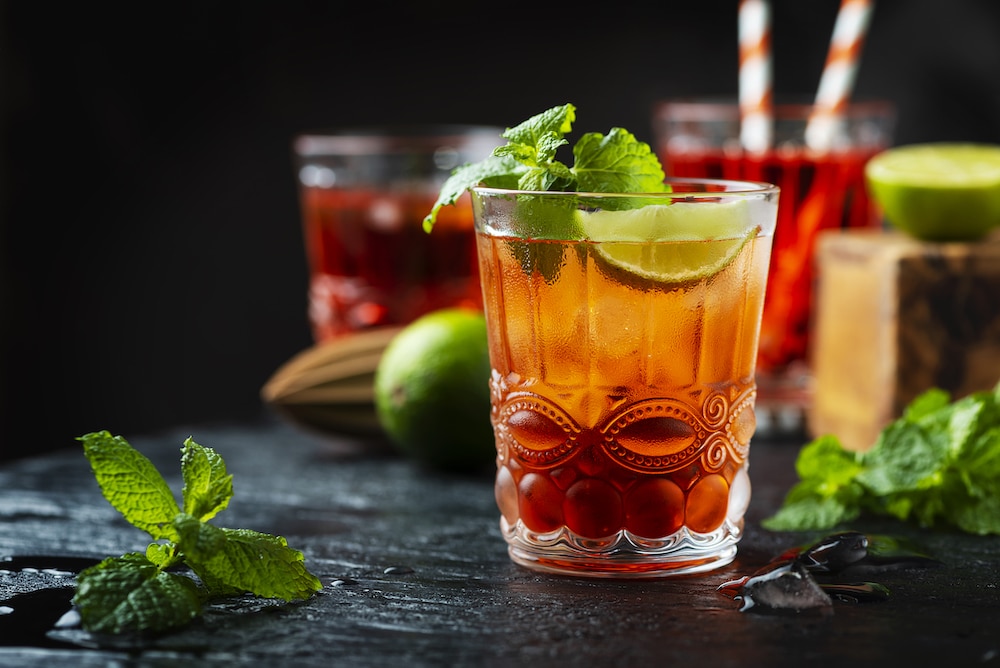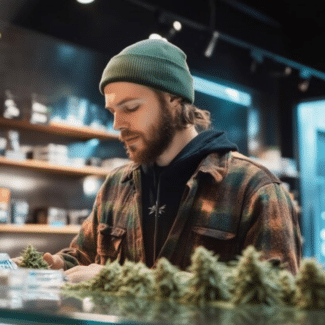Cannabis Beverages: What’s All the Buzz About?
Cannabis beverages are rapidly gaining popularity in the legal cannabis market, offering a diverse range of options for consumers. These drinks provide a discreet and social way to consume cannabis, appealing to both seasoned users and newcomers. With benefits such as anxiety relief and improved mood, they are becoming a preferred choice for those seeking wellness products. As the market evolves, education on dosing and responsible consumption remains crucial for both consumers and brands.

The legal cannabis market opened the door for product innovation, and one of the fastest-growing categories is cannabis beverages. Currently, beverages hold a small but mighty position in cannabis sales, which will only grow. Between 2020 and 2022, the beverage market in the US increased by 22%, while the Canadian beverage market grew by 16%.
What Are Cannabis Beverages?
What qualifies as a cannabis beverage? The simplest definition is a liquid that contains cannabis extract, whether THC, CBD, or both.
Cannabis drinks come in a wide range of options. Analytics company Headset identifies seven categories in their Cannabis Beverages Report, including:
- Water
- Carbonated beverages
- Iced tea, lemonade, and fruit drinks
- Sports and energy drinks
- Mocktails
- Coffee, tea, and hot cocoa
- Drops, mixers, elixirs, and syrups.
In short, options abound for the curious cannabis consumer. The brand with the current largest market share in the US is the California-based CANN, which sells small-dose canna-tonics with unusual flavors, like yuzu and lemon/lavender.
Why are beverages growing at such a fast pace? They fill a gap in the legal market, providing a casual, social consumption option. These drinks are inconspicuous, and people may not even recognize them as weed. While smoking can be a communal activity, there’s no such sense of camaraderie when people take edibles. But with beverages, you can get together with friends and toss a few back without touching a drop of alcohol.
Cannabis beverages offer a scale of dose options, ranging from 2.5 mg per can (so you can have a few) to 10 – 25 mg per can, perfect for sipping and savoring. And most people aren’t just having one — according to MJ Biz, 57% of canna-beverage consumers drink weekly.
Understanding Cannabis as a Wellness Product
The most abundant compounds in cannabis, THC and CBD, are commonly marketed as wellness products. The plant’s health benefits make it of particular interest to people who are conscious of what they’re putting into their bodies.
Drinking cannabis removes the carcinogens produced when you smoke and most sugar and preservatives commonly found in edibles, making it a choice for people who watch their diet or are concerned about added ingredients. A seltzer with no added sugar or dyes is a better choice than a chocolate-laden brownie or sugar-filled gummy.
Canna-beverage consumers can still enjoy many of the medicinal benefits of the plant, including:
- Anxiety relief. CBD and THC can provide anxiolytic effects in low doses.
- Pain relief. CBD and THC have pain-relieving (analgesic) and anti-inflammatory properties that work throughout the body.
- Anti-depressive effects. CBD’s antidepressant effects work alongside the anti-anxiety effects.
- Improved sleep. CBD functions in two ways for rest: low doses can promote wakefulness, while high doses can increase your sleep time. Though most experts suggest long-term use is problematic, THC can also help you fall asleep.
- Skincare. In addition to the anti-inflammatory effect, CBD has several effects that make it a promising acne treatment, including reducing oil production on the skin.
- Improved metabolic rate. THC can shift your metabolic rate and potentially even alter your gut biome.
- Better mood. THC has well-documented euphoric effects that can improve your mood.
Health Considerations for Cannabis Beverages
The biggest appeal of cannabis beverages is the ease of consumption, as opposed to smoking the plant. Beverages are consumable at any time, in any place. But there is an education challenge for canna-beverages.
Most adults understand what an alcohol percentage on a can of beer or bottle of wine means and how drinking it will affect them. But understanding dosing cannabis in milligrams can be confusing for new consumers. They may not understand how big the dose on the can is relative to smoking or how drinking a few beverages will affect them.
Cannabis companies must educate their consumers not only on dosing but serving size. Even without the risk of a nasty hangover, consuming too much cannabis and feeling adverse effects is possible. While some consumers may insist on learning this the hard way, there are steps brands can take to help new consumers understand the impacts of these beverages and how many of them are appropriate to have in one sitting.
Additionally, cannabis beverages are not exempt from the strict labeling standards in the industry. A mislabeled beverage can lead to product liability claims if a consumer has a poor experience.
The Future of Cannabis Beverages
Cannabis beverages are a relatively new consumption method that’s not going away any time soon. While these present a novel option for both the canna-cautious and the plant enthusiast, brands still shoulder the responsibility of educating people on what it means to “drink weed responsibly.” This market sector has seen an influx of brands over the past two years, and you can expect to see even more as more states come online.
Protecting your cannabis company can seem confusing; however, we’re a full-service insurance brokerage working with carriers worldwide to offer you the best coverage possible. We’re here to help! Please reach out to us today by emailing [email protected] or calling 646-854-1093 for a customized letter of commitment or learning more about your cannabis insurance options.



